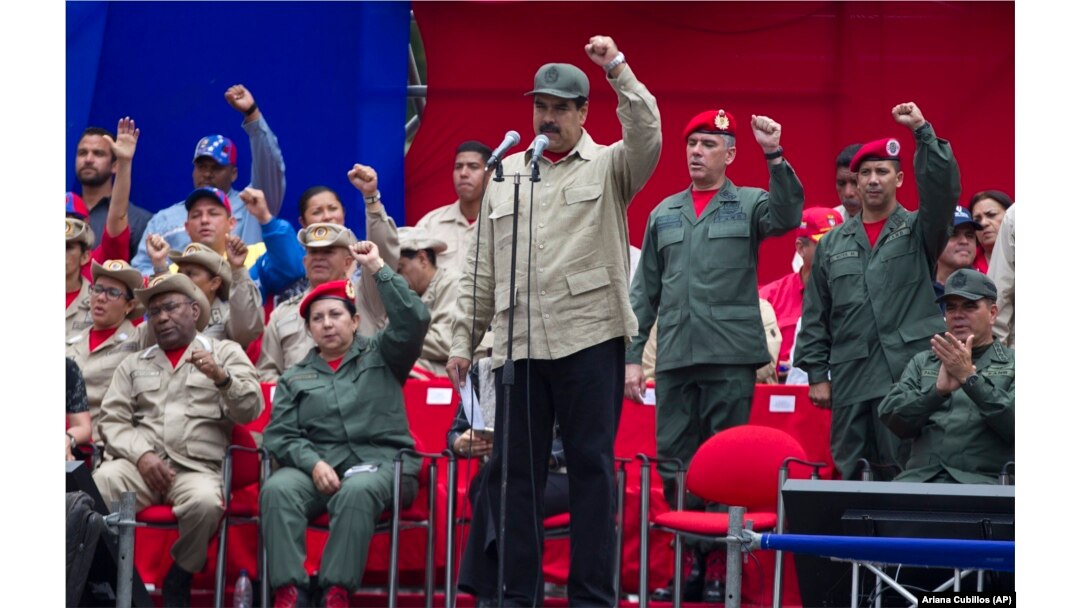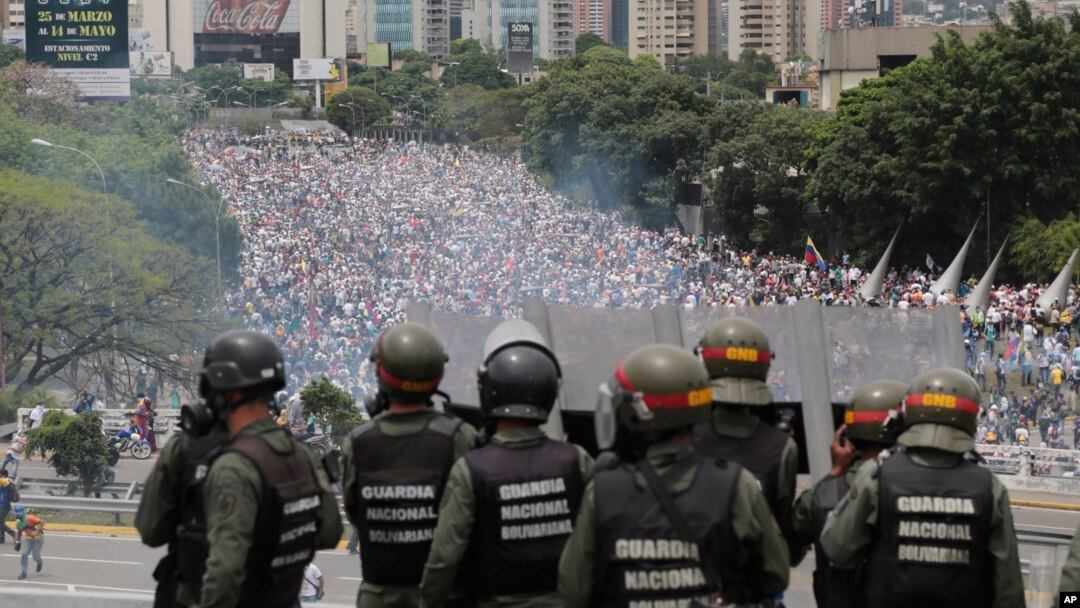At least 65 members of Venezuela's military, ranking from officers to the captain of an important border region unit, have been detained, raising questions about whether a fissure exists within the nation's armed forces, according to an attorney representing several of those arrested.
Some of the officers have been charged with betraying the motherland and instigating rebellion while others are still awaiting a court hearing, said Alonso Medina of Foro Penal, a non-governmental lawyers' organization.
Opposition leader Henrique Capriles said last week that dozens of officers had been detained for "expressing discontent'' and said Thursday the nation's military is "profoundly unhappy'' with the government.
"The armed forces are completely divided,'' he said.
Embattled President Nicolas Maduro's administration rejects any notion that the 60,000-member strong military is wavering in its support as hundreds of thousands of Venezuelans take to the streets demanding elections.

FILE - Venezuela's President Nicolas Maduro leads the seventh anniversary celebration of the Bolivarian Militia, in front of the Miraflores presidential palace in Caracas, Venezuela, April 17, 2017.
Defense Minister Vladimir Padrino Lopez told Russian broadcaster RT that the armed forces are concentrated on their "constitutional work'' and that any suggestion that their loyalties are divided is an attempt to promote a military uprising.
Venezuela's Ministry of Communication did not respond to a request for comment on the military officer detentions.
Analysts are doubtful the defections represent a significant turning point.
"If people were to storm the palace, the military would not intervene to save Maduro,'' said Daniel Lansberg-Rodriguez, a Northwestern University professor. "But the military would not storm the palace under present conditions.''
Venezuela's armed forces are considered a critical component to the stability of Maduro's government, and during the four years of his administration, he has significantly increased their authority over a wide range of affairs. He has also ensured that in a country with triple-digit inflation and shortages of everything from toilet paper to Tylenol, they have access to hard-to-find benefits like food imports and bonuses in dollars.
Anti-government protesters take cover from a water canon fired by security forces blocking a student march from reaching the Education Ministry in Caracas, Venezuela, May 8, 2017.
A wave of street protests has clearly put strain on national guardsmen on the frontlines of the protests. Demonstrators frequently walk up to where they stand shoulder-to-shoulder blocking roads, urging them to think twice before repressing demonstrations. On Wednesday, protesters hurled jars filled with fecal matter in their direction.
"When those vagabonds arrived, we were the first to stand in front of you,'' one national guardsman told protesters Wednesday after a group of pro-government armed civilians arrived. "Guaranteeing your lives without even having the means to combat that.''
On Monday, high-ranking retired Venezuelan military officers in Florida urged protesters to stay in the streets and urged the armed forces to stop repressing the demonstrations, which frequently end with plumes of tear gas and shots of rubber bullets. At least 38 people have been killed in the unrest and more than 700 injured.
Lansberg-Rodriguez said those within the military who dislike the government tend to be lower-ranking officers, and that it is possible there will be more defections. But he said none of the four branches are likely to move against him.
"The government has done its best to keep the military comparatively happy,'' he said.


